Search
Remove Ads
Advertisement
Search Results
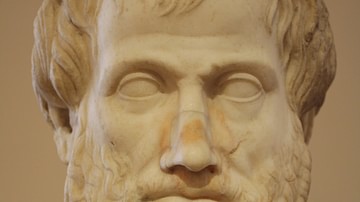
Article
Aristotle's On the Heavens
One of Aristotle's more famous quotes was, "All men naturally desire knowledge" ("πάντες ἄνθρωποι τοὺ εἰδέναι ὀρὲγονται φύσει") (Aristotle, Metaphysics, 1.980a.22). As a classical Greek philosopher, an ideology like this is required for producing...

Video
Scientific Revolution: Crash Course
There was a lot of bad stuff going on in Europe in the 17th Century CE. We've seen wars, plagues, and unrest of all types. But, there is some good news. Huge advances were underway in the scientific community in Europe at this time. In this...
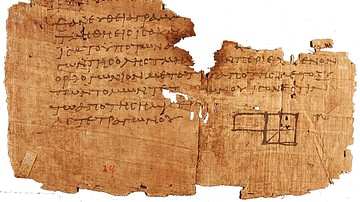
Definition
Ancient Greek Science
Ancient Greek science is a modern term for the application of systematic inquiry into the individual, the world, and the universe, which began in Ionia in the 6th century BCE with Thales of Miletus (l. c. 585 BCE) and continued through the...
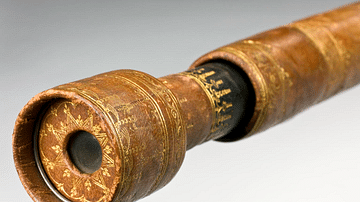
Article
The Telescope & the Scientific Revolution
The invention of the telescope in 1608 is usually credited to the Dutchman Hans Lippershey. The astronomical telescope became one of the most important of all instruments during the Scientific Revolution when figures like Galileo (1564-1642...

Video
The Scientific Revolution: Crash Course History of Science #12
So, what exactly is a scientific revolution? And are they more than just moments in time Historians use to mark the beginning and ending of things through time? In this episode we'll look into some ideas and people named Nick and how they...
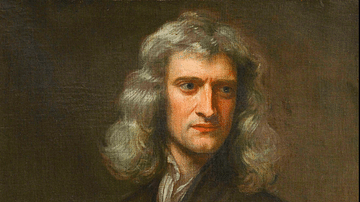
Definition
Isaac Newton
Isaac Newton (1642-1727) was an English mathematician and physicist widely regarded as the single most important figure in the Scientific Revolution for his three laws of motion and universal law of gravity. Newton's laws became a fundamental...

Definition
Caesarion
Ptolemy XV Caesar “Theos Philopator Philometor” (“the Father-loving Mother-loving God”) (c. 47-30 BCE), better known by his unofficial nickname Caesarion or “Little Caesar” in Greek, was the oldest son of Cleopatra VII (69-30 BCE) and was...

Definition
Ptolemy XII
Ptolemy XII Neos Dionysos (r. 80-51 BCE) was king of Ptolemaic Egypt and father of Cleopatra VII (r. 51-30 BCE). His illegitimate birth and drunkenness inspired ridicule, and he was nicknamed "Auletes" ("the Flute-Player") for his musicianship...

Definition
Antikythera Mechanism
The Antikythera mechanism (also known as the Antikythera Device), dated to the late 2nd century/early 1st century BCE (roughly 205-60 BCE) is understood as the world's first analog computer, created to accurately calculate the position of...
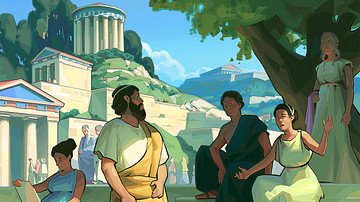
Article
Greek Mathematics
Greek mathematics, the study of numbers and their properties, patterns, structure, space, apparent change, and measurement, is said to have originated with Thales of Miletus (l. c. 585 BCE) but was clearly understood during the periods of...